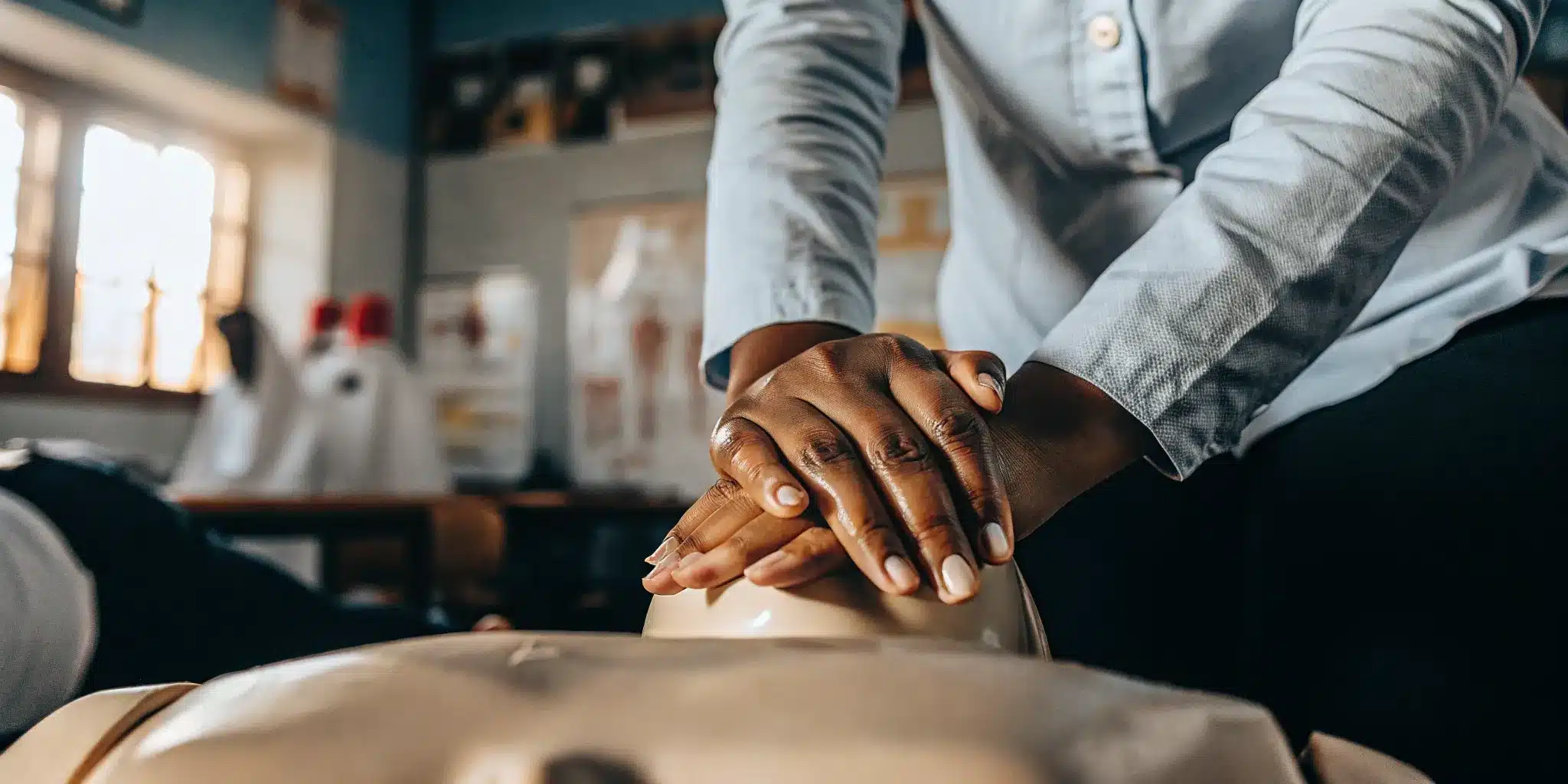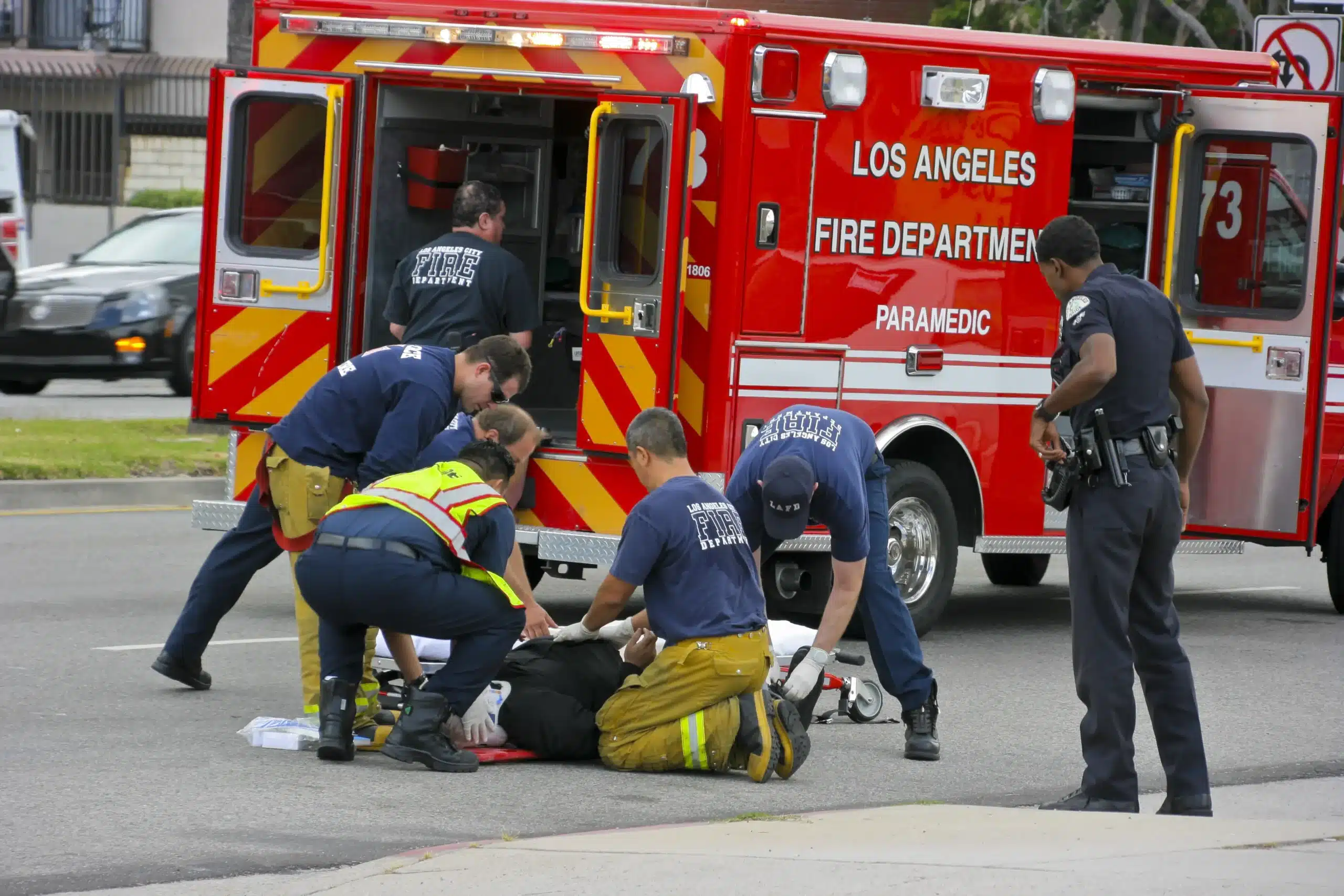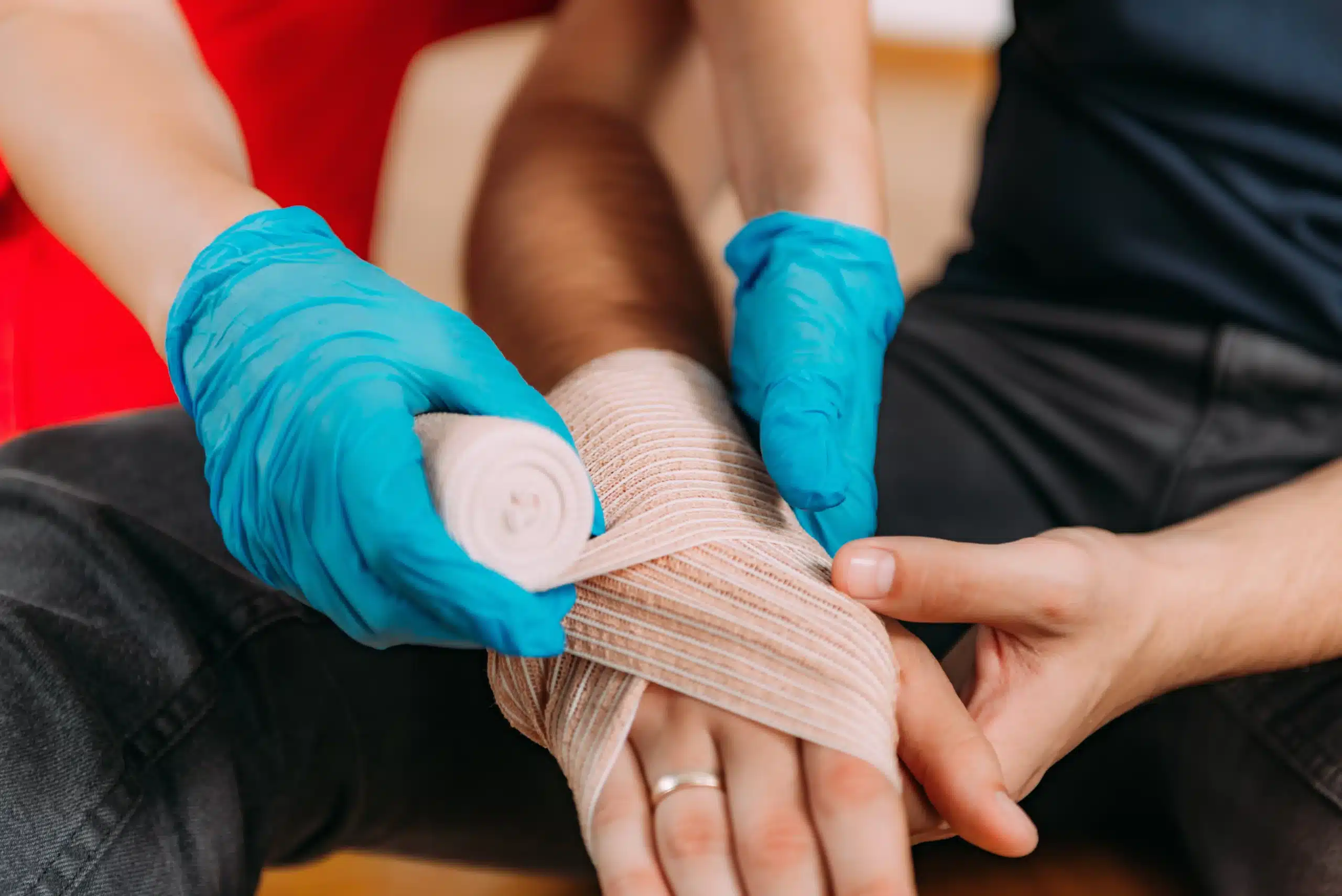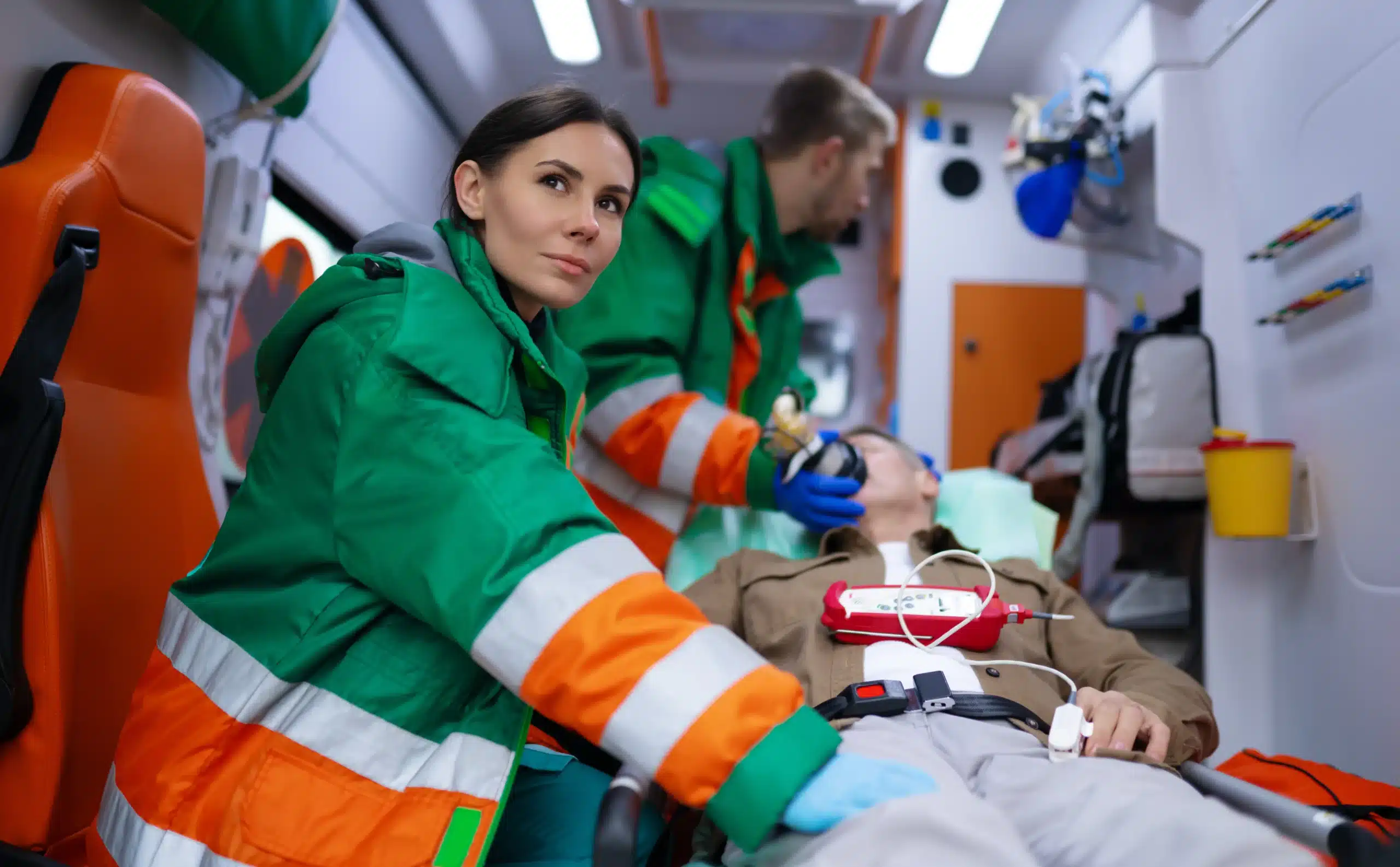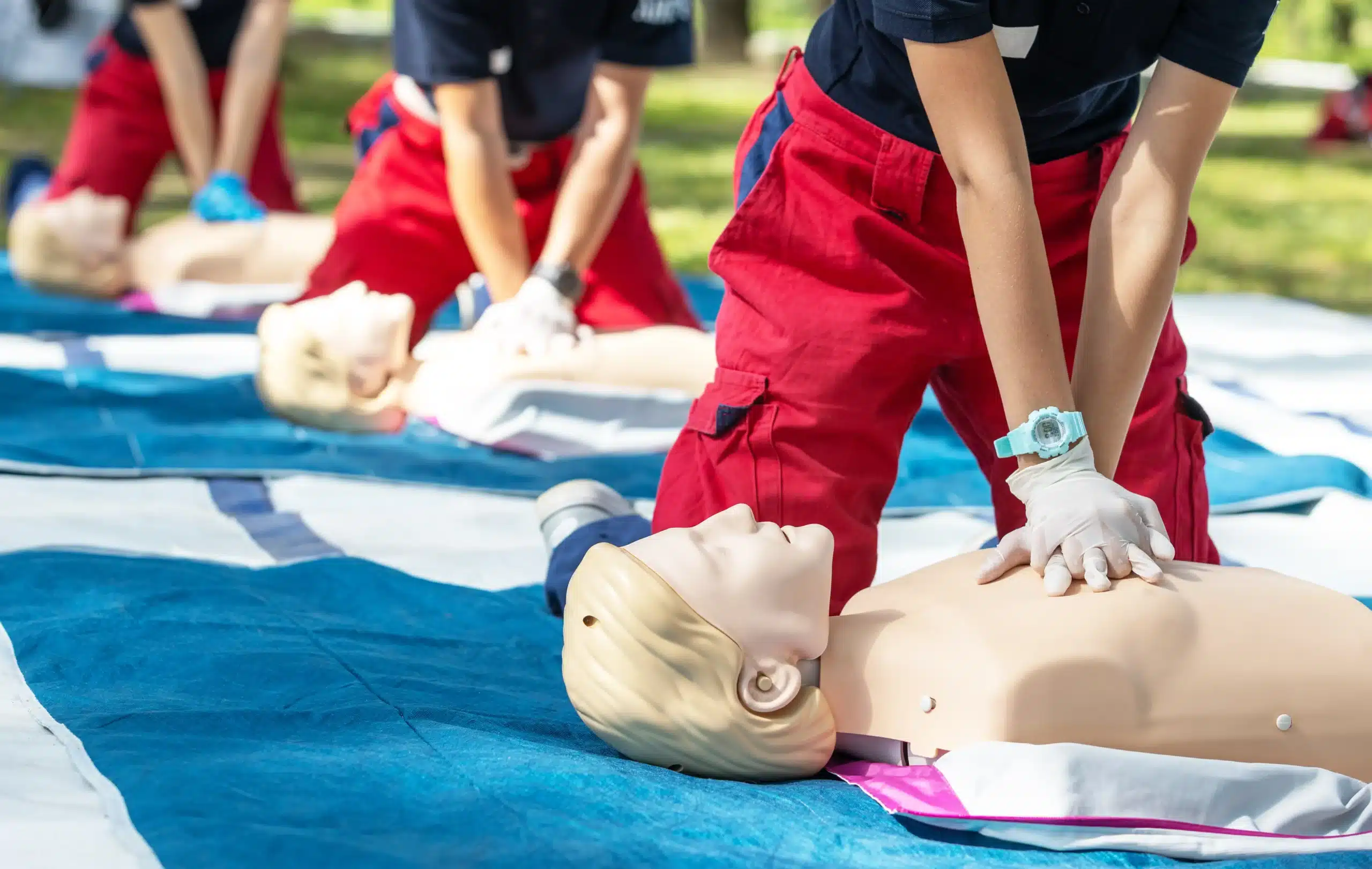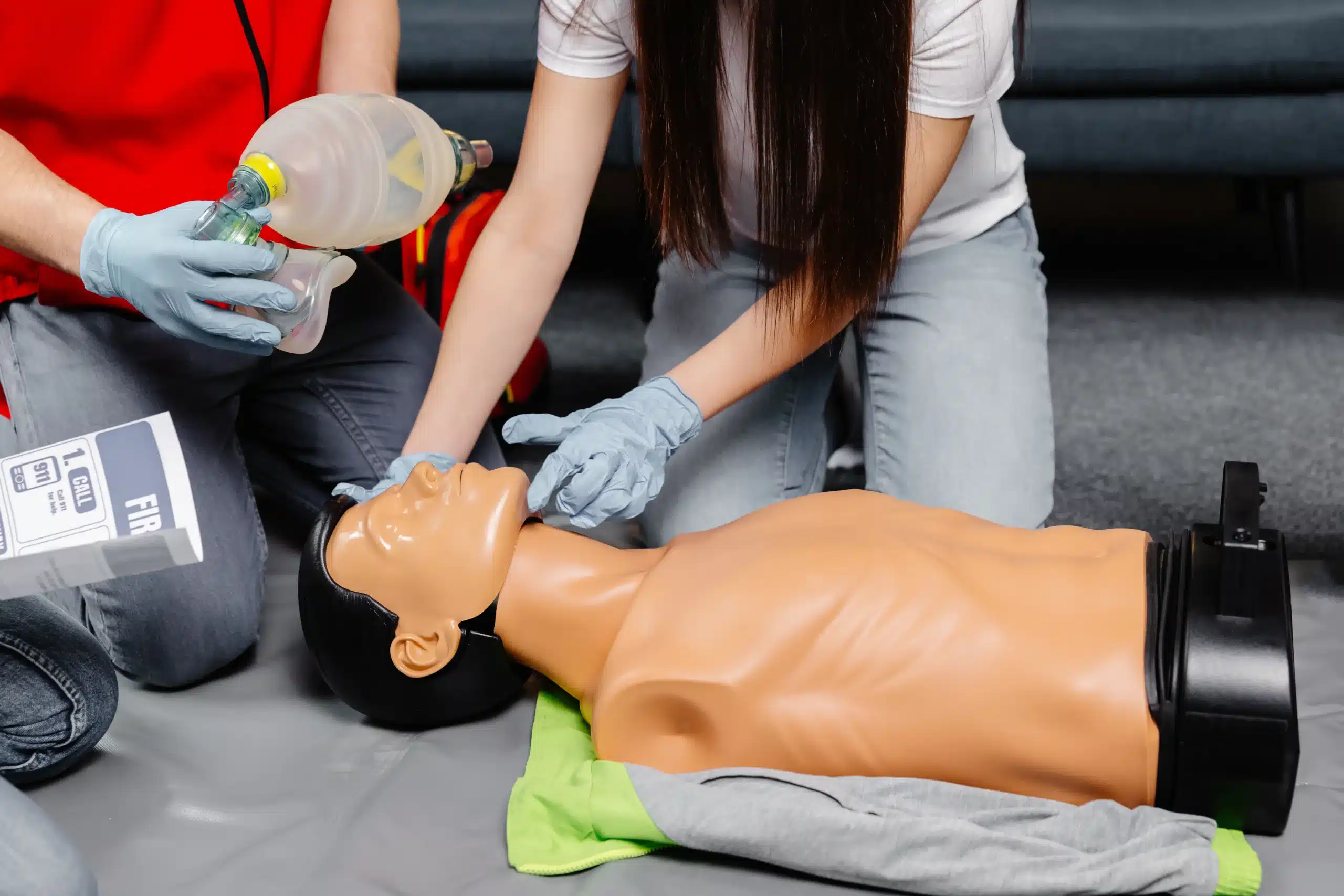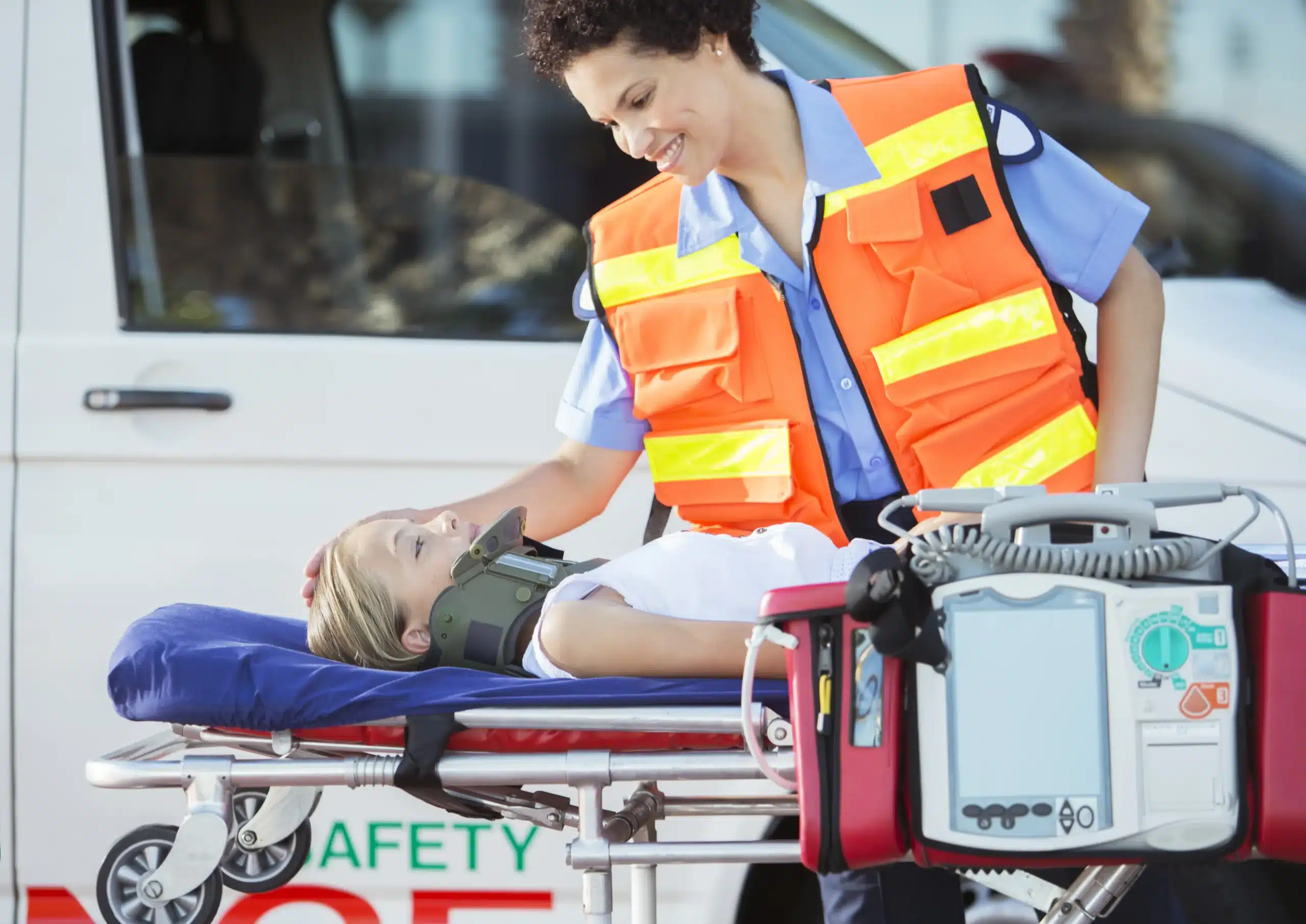Emergencies happen, and when they do, being prepared can make all the difference. Knowing CPR and first aid can empower you to act quickly and confidently, potentially saving lives in your community. This comprehensive guide explores the importance of CPR and first-aid training Fresno, covering everything from the basics of these life-saving skills to finding the right training program for you. Whether you’re a healthcare professional, a student, or simply a concerned citizen, this guide will equip you with the knowledge and resources to become a more prepared and confident responder in times of crisis. We’ll delve into various aspects of CPR and first-aid training Fresno, including available courses, certification processes, and debunking common myths.
Key Takeaways
- CPR and First Aid training empowers you to handle emergencies: Equipping yourself with these skills allows you to confidently respond to various medical situations, from minor injuries to life-threatening events. Explore the range of courses offered by Fresno CPR Classes to find the right fit.
- Fresno CPR Classes provides convenient and affordable training: With various certification levels available, including BLS, ACLS, and PALS, you can find a course that aligns with your specific needs and schedule. Take advantage of their flexible scheduling and competitive pricing.
- Certification provides valuable skills and peace of mind: Investing in CPR and First Aid certification not only equips you with essential skills but also fosters a sense of preparedness and confidence. Maintain your certification to ensure your skills remain sharp and up-to-date.
What is CPR and First Aid?
Knowing the difference between CPR and First Aid, and why they’re important, is the first step to becoming confident in your ability to handle emergencies. Let’s break down each concept:
What is CPR?
CPR stands for Cardiopulmonary Resuscitation. It’s a lifesaving technique used when someone’s breathing or heartbeat has stopped. This can happen due to a heart attack, drowning, or other medical emergencies. CPR involves chest compressions, which manually pump the heart to circulate blood to the brain and other vital organs. Sometimes, CPR also includes rescue breaths. Learning proper CPR technique is crucial for maximizing its effectiveness.
What is First Aid?
First Aid is the immediate assistance given to someone suffering from a minor or serious illness or injury. It covers a broad range of techniques, from cleaning and bandaging a cut to stabilizing a broken bone or helping someone who is choking. Anyone can learn and perform First Aid. It’s about providing initial care until professional medical help arrives. Learn more about our First Aid training.
Why are These Skills Important?
CPR and First Aid skills are essential for everyone, not just medical professionals. Over 500,000 cardiac arrests occur yearly in the US. Knowing CPR can be the difference between life and death. Equipping yourself with these skills empowers you to respond effectively in emergencies, potentially saving lives in your community. Many workplaces require CPR and First Aid certification, especially in healthcare, education, and childcare settings. Fresno CPR Classes offers a low price guarantee on all courses. Contact us to find a class that fits your needs.
Why CPR and First Aid Skills Matter in Fresno
Knowing CPR and first aid can make a real difference in your community. Fresno, like any other city, has its share of medical emergencies. Being equipped to handle these situations can significantly impact the outcome, potentially saving lives and minimizing harm. Let’s explore why these skills are so crucial in Fresno.
Increase Survival Rates
When someone experiences sudden cardiac arrest, immediate CPR can dramatically increase their chances of survival. CPR helps maintain blood flow to the brain and other vital organs until professional medical help arrives. Hundreds of thousands of cardiac arrests occur annually in the US, making CPR a truly life-saving skill. Learning CPR equips you to respond effectively in such critical situations, potentially bridging the gap until paramedics arrive.
Build a Safer Community
Having a network of trained individuals creates a safety net for everyone. When more people are trained in CPR and first aid, the chances of someone nearby who can assist during an emergency increase. This can be especially important in situations where professional medical help may be delayed. CPR training fosters a sense of preparedness and empowers individuals to take action, contributing to a more resilient and safer community in Fresno. Organizations like CPR Certification Fresno highlight the importance of this community preparedness. Consider exploring group discounts for CPR training with friends, family, or colleagues.
Meet Workplace Requirements
Many workplaces, particularly those in healthcare or involving children, require employees to have valid CPR and first-aid certifications. This ensures a baseline level of safety and preparedness in the workplace. In-person CPR and first aid training often includes hands-on practice and leads to a two-year certification that meets Occupational Safety and Health Administration (OSHA) standards. This certification not only fulfills workplace requirements but also provides the confidence to respond effectively in emergency situations. Explore our low price guarantee for affordable options. Contact us to discuss your specific training needs.
CPR and First Aid Training Options in Fresno
Fresno offers a variety of CPR and first-aid training programs to equip you with life-saving skills. Whether you’re a healthcare professional, a student, or simply a concerned community member, there’s a course that fits your needs. Let’s explore some of the key training options available:
Basic Life Support (BLS)
BLS certification courses provide the foundational knowledge and skills to respond to life-threatening emergencies. These courses cover essential techniques for adult, child, and infant CPR, along with how to use an Automated External Defibrillator (AED). BLS certification is often a prerequisite for other advanced certifications and is valuable for anyone wanting to learn these essential skills. Many healthcare providers and those in related fields require this certification.
Advanced Cardiovascular Life Support (ACLS)
ACLS training focuses on advanced life-saving procedures for healthcare professionals responding to cardiovascular emergencies. This course covers complex algorithms, team dynamics, and effective management of respiratory and cardiac arrest. ACLS certification goes beyond the basics of CPR and equips healthcare providers with the skills to handle critical situations.
Pediatric Advanced Life Support (PALS)
PALS courses are tailored for healthcare providers who work with infants and children. This specialized training covers the assessment and management of pediatric emergencies, including respiratory distress and cardiac events. PALS certification emphasizes the unique physiological differences between children and adults, ensuring that healthcare professionals can provide age-appropriate care during critical situations.
Neonatal Resuscitation Program (NRP)
The NRP focuses on the specific needs of newborns requiring resuscitation. This program provides healthcare professionals with the skills to manage respiratory and cardiac emergencies in the delivery room and other neonatal settings. NRP certification is essential for healthcare providers involved in newborn care, ensuring they can provide immediate and effective support during those first critical moments.
First Aid Training
First aid training equips individuals with the skills to manage a wide range of non-life-threatening medical situations. From minor cuts and burns to sprains and fractures, first aid training provides practical knowledge and techniques to provide immediate care before professional medical help arrives. These courses are beneficial for everyone, regardless of their profession.
Training Formats and Duration
Deciding on the right CPR and First Aid training format depends on your learning style, schedule, and certification needs. Let’s break down the most common options available in Fresno.
In-Person Classes
In-person CPR and First Aid classes offer hands-on learning, crucial for mastering these life-saving skills. You’ll work directly with a certified instructor and practice on training mannequins, giving you the confidence to perform compressions and other techniques correctly. These courses typically result in a two-year certification, meeting workplace standards like those set by OSHA. This format is ideal for those who learn best through direct interaction and physical practice. Fresno CPR Classes offers classes in over 60 cities, making it easy to find a convenient location and time. For more information, contact us today.
Online Courses
Online courses provide a flexible alternative for learning the basics of CPR and First Aid. You can study at your own pace and review materials as needed. However, online-only courses typically don’t provide the same level of certification as in-person training. While you’ll gain theoretical knowledge, you’ll miss out on the crucial hands-on practice with mannequins and feedback from an instructor. Consider this format for refreshing your knowledge or for introductory learning. If you need certification for your job, an in-person or blended learning option is usually required. Our RQI courses offer a flexible online option.
Blended Learning
Blended learning combines the convenience of online learning with the benefits of in-person instruction. This format typically involves completing online modules covering the theory, followed by a hands-on skills session with an instructor. This approach allows you to learn at your own pace and then practice your skills in a controlled environment. Blended learning is a great option for those who want flexibility but also recognize the importance of hands-on training. It ensures you’re well-prepared for real-life emergencies by combining knowledge with practical application. Contact us to learn more about our blended learning options.
Get Certified: Process and Validity
How to Get Certified
Getting your CPR and First Aid certification is straightforward. Reputable organizations like the American Red Cross and independent training centers offer a variety of courses. The American Red Cross offers in-person classes, online modules, and blended learning options. This flexibility lets you choose the format that fits your schedule and learning style. For those seeking American Heart Association (AHA) certified courses, providers like CPR Certification Fresno often have same-day certification. Fresno CPR Classes also offers a range of AHA-certified courses, including BLS, ACLS, PALS, and more. Check our website for the latest schedule and course availability.
How Long is Certification Valid?
CPR and First Aid certifications are generally valid for two years. Keep track of your expiration date to ensure your skills and knowledge are current. This preparedness allows you to respond effectively during emergencies. Fresno CPR Classes provides certification cards valid for a full two years.
Recertification Requirements
While providing CPR assistance is always valuable, maintaining your certification is highly recommended. Skills can fade, and regular recertification keeps them sharp. Even with an expired certification, you can still help, but renewing your certification shows a commitment to proficiency. Contact Fresno CPR Classes to discuss recertification options.
CPR and First Aid Training Costs
Knowing the cost of training is a practical first step when you’re ready to learn CPR and first aid. Let’s break down the typical expenses and explore ways to find the best value.
Average Course Prices
In Fresno, you can expect to pay around $59.95 for CPR/AED training. Adding First Aid certification to your CPR/AED training usually brings the total to about $79.95. These prices are averages for courses certified by the American Heart Association (AHA), giving you a solid foundation in these essential skills. Fresno CPR Classes offers CPR and First Aid training at competitive rates.
Factors Affecting Costs
Several factors influence the final price of your training. The length of the course is one key element. Most instructor-led, hands-on classes run for approximately three hours. The type of certification also plays a role. Combined CPR/AED and First Aid courses naturally cost a bit more because they cover more material. Remember that your certification is typically valid for two years, making it a worthwhile investment considering the potential to save a life.
Promotions and Discounts
It’s always a good idea to check for promotions or discounts. Fresno CPR Classes offers group discounts, which are a smart way to save, especially if you’re signing up with friends, family, or coworkers. Contacting providers directly is a great way to ask about current deals and learn more about their various courses, including specialized options like RQI classes. Fresno CPR Classes also has a low price guarantee.
Top CPR and First Aid Training Providers in Fresno
Fresno offers a variety of CPR and First Aid training options, so you can find the right course for your needs. Whether you’re a healthcare professional, a student, or simply someone who wants to learn life-saving skills, several reputable providers serve the Fresno area.
Fresno CPR Classes
Fresno CPR Classes offers a comprehensive range of American Heart Association certification courses. They provide everything from basic CPR and First Aid to advanced certifications like BLS, ACLS, PALS, and NRP. They also offer specialized training, such as EMSA Child Care Health & Safety. Fresno CPR Classes is committed to providing excellent customer service, conveniently scheduled classes in over 60 cities, and a low price guarantee. Serving Fresno, Clovis, and Madera, they also offer group discounts and RQI classes.
American Red Cross
The American Red Cross is a nationally recognized organization that provides CPR/AED and First Aid training. They offer various learning formats, including in-person classes, online courses, and blended learning options. Red Cross CPR/AED certification programs meet OSHA workplace safety standards and are valid for two years. Their in-person classes in Fresno offer hands-on training, giving students practical experience.
CPR Certification Fresno
CPR Certification Fresno offers American Heart Association (AHA) certified CPR and First Aid classes. They focus on providing affordable and convenient training options with same-day certification upon completion of their instructor-led courses. Their hands-on training approach ensures participants gain the confidence and skills to respond effectively in emergencies.
Local Hospitals and Medical Centers
Many local hospitals and medical centers in Fresno also offer CPR and First Aid training courses. These institutions often tailor their programs to meet the specific needs of healthcare professionals and the general public. For example, Solid Rock Health provides resources and information on CPR and First Aid training. Check with hospitals and medical centers in your area for their course offerings and schedules.
Debunking CPR and First Aid Myths
It’s easy to get confused about CPR and first aid, especially with so much information (and misinformation) circulating. Let’s clear up some common misconceptions so you can feel confident helping in an emergency.
“CPR is Only for Medical Professionals”
One of the biggest myths is that CPR is only for doctors and nurses. This simply isn’t true. Anyone can learn CPR—in fact, it’s encouraged! Bystander CPR can significantly improve someone’s chances of survival before professional help arrives. Think of it as a bridge between the emergency and the paramedics. CPR certification classes empower everyday people, like you, with these life-saving skills. Don’t let this myth prevent you from learning something that could make a real difference. Check out our course options to find one that fits your schedule.
“You Can Hurt the Victim by Performing CPR”
It’s understandable to worry about causing harm, but the truth is, doing nothing is far more dangerous. The risk of injury from CPR is minimal compared to the risk of not performing it at all. CPR involves chest compressions and sometimes rescue breaths, techniques taught in a controlled environment with certified instructors. Fresno CPR Classes prioritizes safe and effective training. Remember, in a cardiac arrest, the heart has already stopped, so any attempt to restart it is better than none.
“Mouth-to-Mouth is Always Necessary”
While mouth-to-mouth resuscitation was once a standard part of CPR, guidelines have evolved. Hands-only CPR, focusing solely on chest compressions, is now widely accepted and often recommended by organizations like the American Heart Association. This makes CPR even more accessible for those hesitant about rescue breaths. Learning both techniques is valuable, and we cover both in our comprehensive CPR courses. The most important thing is to act quickly and confidently with the knowledge you have.
Choose the Right CPR and First Aid Course
Choosing the right CPR and First Aid course is a personal decision. It’s about finding the best fit for your specific needs and learning style. This section will guide you through assessing your needs, comparing providers, and preparing for your training.
Assess Your Needs
Before searching for a course, consider why you want to learn CPR and First Aid. Are you a healthcare professional needing certification for your job, a student in a medical field, or a community member wanting to learn life-saving skills? Everyone benefits from these skills. Understanding your motivation will help you choose the right course. For example, a healthcare provider might need a more advanced course like ACLS (Advanced Cardiovascular Life Support), while a community member might find a basic CPR and First Aid course sufficient.
Compare Providers
Once you understand your needs, compare different training providers. Look for providers offering certification from reputable organizations like the American Heart Association (AHA). Fresno CPR Classes offers a range of AHA-certified courses, ensuring high-quality training. Consider the class format and schedule. Some providers, like the American Red Cross, offer in-person, online, and blended learning options. This flexibility lets you choose a format that fits your lifestyle. Compare pricing and check for discounts, like the group discounts from Fresno CPR Classes.
Prepare for Training
After choosing a course and provider, prepare for your training. Hands-on practice is crucial for CPR training. You’ll learn how to perform chest compressions using a training mannequin. This builds confidence and prepares you for real-life emergencies. Most courses are instructor-led, providing guidance and feedback. Contact your provider to learn about required materials. Come prepared with questions to maximize your learning. The goal is to develop the skills and confidence to act quickly and effectively in an emergency.
The Impact of CPR and First Aid Training
Knowing CPR and first aid can make a real difference in critical situations. It’s about more than just having a certification—it’s about having the confidence to act when it matters most. This section explores how these skills can impact your life and the lives of those around you.
Empower Yourself
First aid and CPR training empowers you to take action in emergencies. Instead of feeling helpless, you’ll gain the skills and confidence to provide immediate assistance to someone experiencing a medical crisis. This can range from treating minor injuries like cuts and burns to responding effectively to life-threatening situations like a heart attack or stroke. This personal empowerment can significantly reduce anxiety, knowing you’re equipped to handle unexpected events. Solid Rock Health offers further insights into the importance of first aid and CPR skills.
Build Community Resilience
CPR and first aid training contributes to a more resilient community. When more people are trained, the chances of someone providing immediate assistance during an emergency increase dramatically. This creates a network of prepared individuals ready to respond, potentially saving lives before professional help arrives. Addressing common misconceptions is crucial for building this community-wide preparedness. Learn more about these misconceptions in this article on CPR myths.
Enhance Workplace Safety
CPR and first aid training is invaluable in the workplace. Equipping employees with these skills creates a safer work environment. Trained individuals can respond quickly to workplace accidents, minimizing the severity of injuries and potentially preventing fatalities. The Red Cross offers CPR classes and certification, providing accessible training options for businesses. Having trained personnel on-site can also reduce response times in emergencies, which is especially critical in workplaces with inherent risks.
Related Articles
- Importance of CPR and First-Aid Training at Work
- Why CPR is Important in Healthcare – Fresno CPR Classes
- The Science Behind Effective CPR – Fresno CPR Classes
- Debunking CPR Myths That Could Cost Lives – Fresno CPR Class
- CPR & First-aid Classes in Fresno, CA – Fresno CPR Classes
Frequently Asked Questions
What’s the difference between CPR and First Aid? CPR focuses on life-threatening situations where someone’s breathing or heartbeat has stopped. First Aid addresses a wider range of injuries and illnesses, providing initial care until professional help arrives. Both are valuable skills to have.
Why should I get CPR and First Aid certified in Fresno specifically? Like any city, Fresno has its share of emergencies. Being trained allows you to confidently respond to situations ranging from minor injuries to life-threatening events, potentially making a crucial difference before professional responders arrive. Plus, many workplaces in Fresno require these certifications.
What kind of CPR and First Aid training is available? You’ll find various options, from basic CPR and First Aid courses for the general public to advanced certifications like BLS, ACLS, and PALS for healthcare providers. There are also specialized courses like the Neonatal Resuscitation Program (NRP) and EMSA Child Care Health & Safety training. You can choose in-person classes, online learning, or a blended approach.
How much does CPR and First Aid training cost, and how long is the certification valid? Costs vary depending on the course and provider, but you can expect to pay somewhere around $60-$80 for combined CPR/AED and First Aid certification. Certifications are typically valid for two years. Look for providers offering discounts, like group rates, or a low-price guarantee.
How do I choose the right CPR and First Aid course for me? Think about why you want the training. Are you fulfilling a job requirement, pursuing a medical career, or simply wanting to be prepared for anything? This will help you determine the right level of certification. Then, compare providers based on their course offerings, schedules, and cost. Consider whether you prefer in-person instruction, online learning, or a blended approach.
This article was written for free by MEGA SEO.
